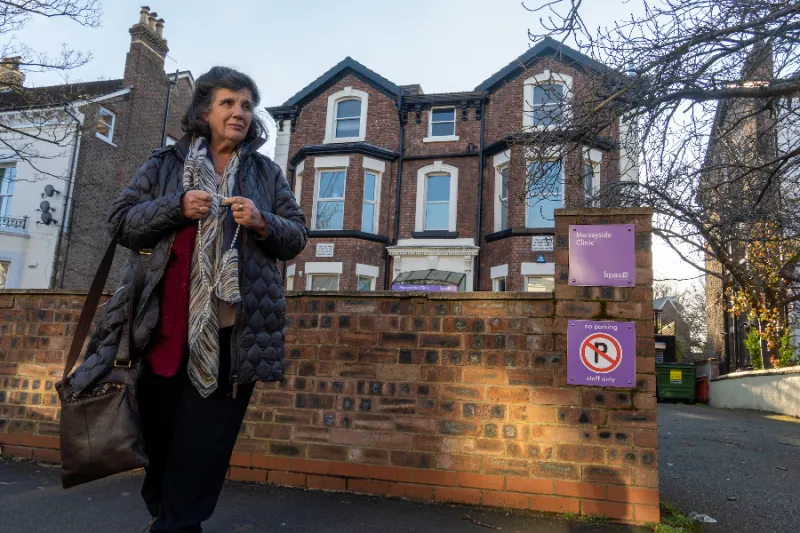
Liverpool, England, Apr 14, 2022 / 07:12 am (CNA).
A 76-year-old grandmother is seeking to overturn a fine she received for taking a “solitary prayer walk” during a COVID-19 lockdown in England.
Rosa Lalor intends to challenge the fine in court with assistance from the Christian legal group ADF UK.
“I have always respected the law and never wished to be involved in legal action, but having been fined simply for praying whilst walking, I know this is an important challenge to take forward,” she said.
“With support from ADF UK, I’m taking a stand to protect fundamental freedoms for all people.”
Lalor engaged in regular prayer walks during a nationwide lockdown in England in 2021, when daily exercise outdoors was permitted.
On Feb. 24, 2021, she left her home in Liverpool and went for a prayer walk near an abortion facility. She wore a mask, walked alone, and maintained a social distance from others.
A police officer stopped her and asked why she was outdoors. When she replied that she was “walking and praying,” the officer reportedly said that she did not have a “reasonable excuse” to be outside and accused her of engaging in a protest.
Lalor was arrested, detained in a police car, charged, and fined 200 pounds (around $260) under temporary coronavirus measures.
She said: “I never thought that in a democratic country like the U.K. I would be arrested for a simple and solitary prayer walk. When I was walking outdoors, I was praying in the privacy of my own mind.”
“What kind of society are we when people can be arrested simply for peacefully manifesting their faith in public?”
Lalor has pleaded “not guilty” to the charge, but her case has not been heard because of a backlog.
Jeremiah Igunnubole, legal counsel for ADF UK, said: “The right to express faith in a public space, including silent prayer, is a fundamental right protected in both domestic and international law.”
“Whether under coronavirus regulations or any other law, it is the duty of police to uphold, rather than erode, the rights and freedoms of women like Rosa.”
“Such arrests subject otherwise law-abiding individuals to distressing and drawn-out criminal proceedings, leading to a chilling effect on freedom of expression and religion generally.”
If you value the news and views Catholic World Report provides, please consider donating to support our efforts. Your contribution will help us continue to make CWR available to all readers worldwide for free, without a subscription. Thank you for your generosity!
Click here for more information on donating to CWR. Click here to sign up for our newsletter.




Britain has been a disappointment throughout the covid pandemic, acting too harshly against its citizens. Ditto former Brit colonies like Canada and Australia, which have gone full dictatorship in their actions, locking covid positive people up, arresting pastors for holding services and suppressing free speech and as this article shows, preventing freedom of movement and assembly. The US has not done well with this either, chipping away at Constitutional freedoms to placate the hysterical types.We are one step away from the draconian actions of China. . Much of this can be laid at the door step of media outlets which have become little more than unthinking propaganda mills for the left, and have acted to suppress an honest discussion of the disease and how to handle it. The media have betrayed the professional standards of their calling. Immense damage done on many levels world-wide, all for a virus which is little worse than the annual flu. Disgusting.